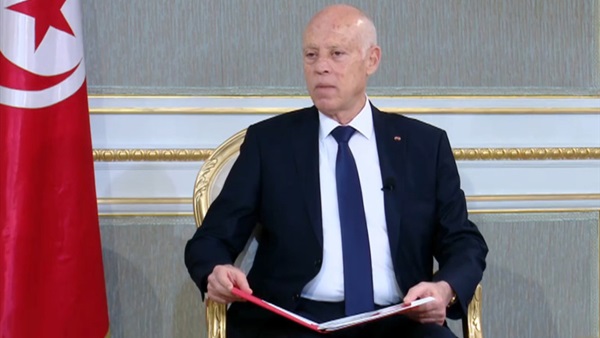Tunisia's Saied hits two birds with political roadmap stone

Tunisia began the countdown to the implementation of the political roadmap declared by President Kais Saied on December 13.
The roadmap, unveiled on the
anniversary of what is known in Tunisia as the 'Jasmine Revolution', includes a
referendum on potential constitutional amendments on July 25 next year and
legislative elections on December 17 of the same year.
By unveiling the roadmap, President
Saied has succeeded in hitting two birds with one stone.
He initially succeeded in evading
local and international criticism, which mainly was induced by his failure to
declare a roadmap in the past period.
The roadmap declared by the president
also gives him enough time to formulate the required constitutional amendments and
amendments to Tunisia's election law.
The Tunisian president had, on more
than one occasion, criticized the Tunisian constitution and the law regulating
elections.
The constitution and the law, he
said, were drafted in a way that favors some of the political forces that used
to control the Tunisian political scene.
These forces are known to include
Ennahda movement and party, the political arm of the Muslim Brotherhood in
Tunisia.
The movement and the party
controlled the Tunisian political stage for the past decade, known among
Tunisians as the 'Black Decade'.
Roadmap
There are many indications of the roadmap
announced by the Tunisian president.
President Saied overlooked all the
criticism leveled against him in the past period, whether from Ennahda movement
or from secular political forces, such as the Tunisian Labor Union.
The union has become part of political
conflicts in Tunsiai, having accused the president of delaying the roadmap and establishing
a new dictatorship in Tunisia.
For his part, President Saied took a
hostile position hostile to some of his country's political parties,
considering them part of the corruption of the political scene during the past
ten years.







